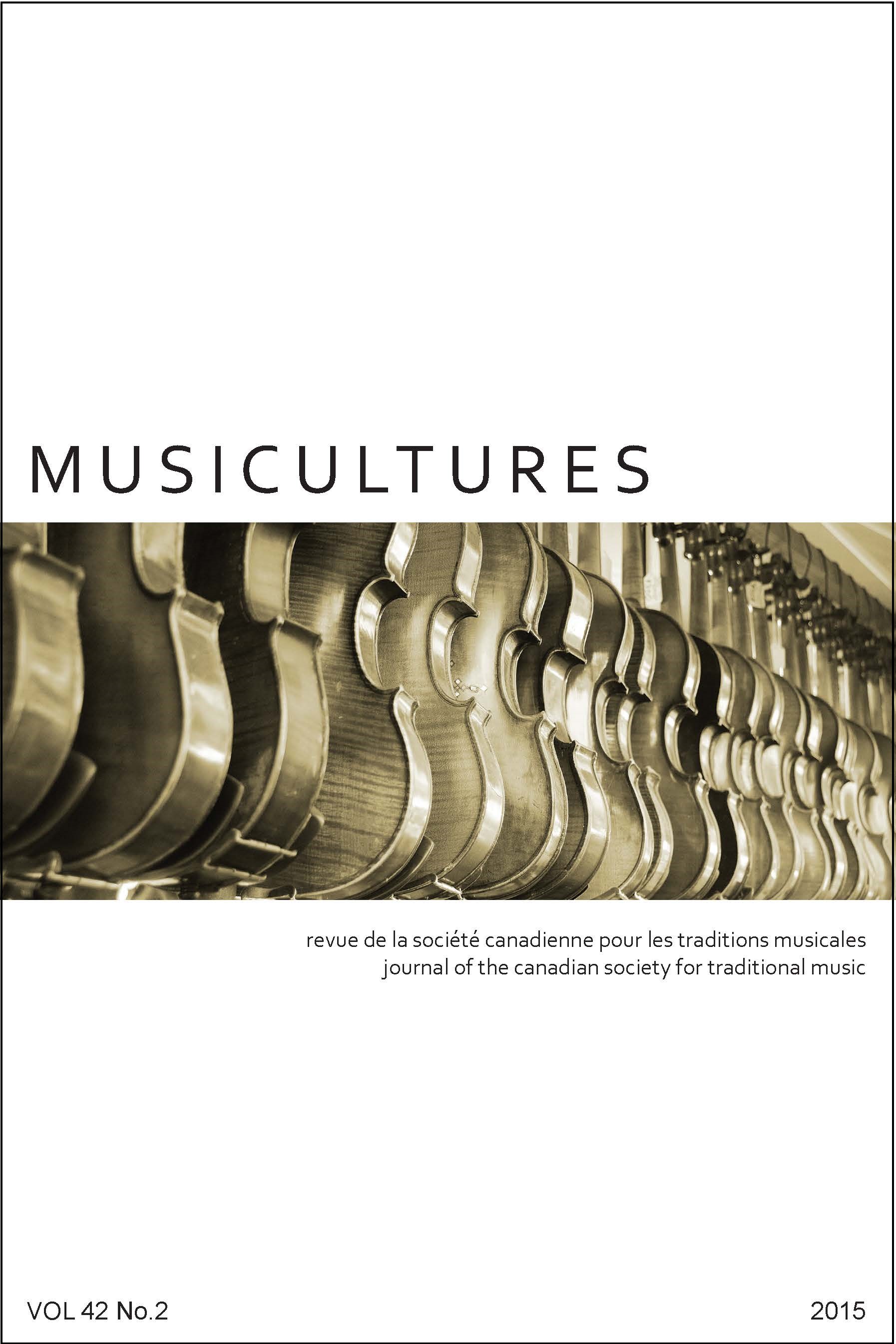Abstract
In the past few decades, Newfoundland and Labrador (NL) has been increasingly viewed as inherently Irish in nature. As a North Atlantic island and a former British colony with a boom/bust economic cycle, NL shares many ethnic, geographic, and economic similarities with Ireland. The rocky landscape, foggy weather, friendly people, and the slightly Hiberno-English accent of the capital city often reminds visitors of Ireland. As an extension, Newfoundland and Labrador culture as a whole, and music in particular, is frequently assumed to primarily be a product of Irish heritage. Certainly many Newfoundlanders have Irish ancestry and the history of the Irish in Newfoundland is incredibly important. However, it does not necessarily follow that the music heard today in pubs and on recordings stems directly from that history. The story is much more complex. Today, Newfoundland music that is labelled traditional comprises musics handed down through generations of English, Irish, Scottish, and French ancestors, as well as local compositions, and music exchanged through cultural, economic, or technological flows via printed media, radio, television, recordings, and personal contact between musicians near and far. This article examines how Newfoundland music came to be perceived as Irish through three periods of heightened musical interactions with Irish musicians.- The author retains copyright over the work.
- The author grants the journal owner (The Canadian Society for Traditional Music / La Société canadienne pour les traditions musicales) an exclusive license to publish the work.
- The author may post a pre-print or post-print version of the work (see definitions below) on a personal website for up to twelve months after the work is published in MUSICultures. After twelve months, the pre-print version must be replaced with the published version.
- The author may deposit the published PDF of the work in a non-commercial online repository twelve months after the work is published in MUSICultures, or any time thereafter.
- Any such deposit must include a link to the work on the MUSICultures website, e.g., https://journals.lib.unb.ca/index.php/MC/article/view/19996
A pre-print is a work-in-progress—a contribution not yet accepted, or perhaps even submitted, to MUSICultures.
A post-print is the version of a contribution after peer review and acceptance by MUSICultures, with revisions completed.
The published version is the PDF file of a contribution as it appears in MUSICultures.
Please note that academia.edu and ResearchGate.com are both for-profit repositories; authors may not deposit the published PDF of the work in these repositories until after the journal’s embargo period.
For permission to reprint or translate material from MUSICultures, please contact Heather Sparling, General Editor of MUSICultures (heather_sparling@cbu.ca).

